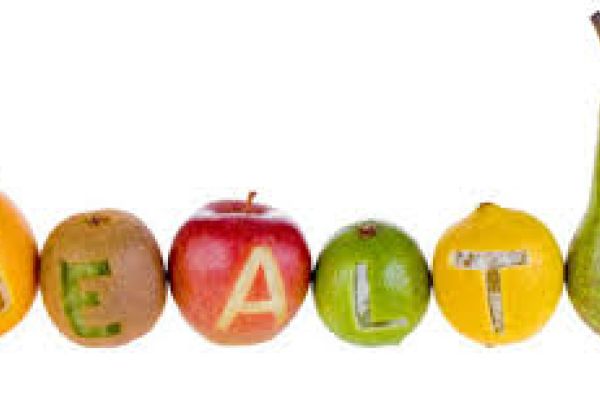
Stress 压力
Overcoming Emotional Eating
克服情绪化饮食
How to recognize and respond to emotional eating
如何识别和应对情绪化饮食
Posted May 23, 2014
发表于 2014 年 5 月 23 日
The trick with emotional eating is it often happens automatically, kind of in the background. You might not be able to say, “I just had a fight with my spouse and now I notice myself going to the cupboard with the intention of eating a whole bag of chips. Ha ha!” Some people might have examples like that where they are aware of what’s happening when it’s happening, but a lot of emotional eating is more subtle. Maybe you had a difficult day at work, you realize you had nothing planned for dinner, you are passing a fast food restaurant and decide to grab something there for the sake of convenience. Our minds are really good at justifying our food decisions, not matter how unhealthy, and might lead us to believe that circumstances, more than emotions, were the culprit.
情绪化饮食的诀窍在于它通常会自动发生,有点像在后台。你可能不能说:“我刚刚和我的配偶吵了一架,现在我注意到自己走到橱柜前,打算吃掉一整袋薯片。哈哈!”有些人可能有这样的例子,当事情发生时他们知道正在发生什么,但很多情绪化饮食是更微妙的。也许你工作了一天很艰难,你意识到你没有计划吃晚餐,你路过一家快餐店,为了方便起见,你决定在那里买点东西。我们的大脑非常擅长为我们的食物决定辩护,无论它多么不健康,并且可能会让我们相信环境,而不是情绪,才是罪魁祸首。
Another problem, of course, is that different people will eat for different emotional reasons. Some may eat when they are anxious, or sad, or perhaps bored, and still others may find they eat more in joyous times, as kind of a way of making a fun time even more fun (or perhaps as an attempt to not “ruin” a fun time by putting restrictions on your food choices, which could lead to feeling deprived). This makes it hard to identify a single sign for everybody.
当然,另一个问题是,不同的人会出于不同的情感原因而进食。有些人可能会在焦虑、悲伤或无聊时吃东西,还有一些人可能会发现他们在快乐的时候吃得更多,作为一种让有趣的时间变得更有趣的方式(或者可能是为了不“破坏”) “通过限制食物选择来度过一段有趣的时光,这可能会导致感觉被剥夺)。这使得很难为每个人识别一个单一的标志。
So the best way to see if emotional eating is an issue for you would be to tune into yourself a little more. First, keep at least a rough track of what you are eating. Did I eat more than I had planned to eat today? It would help to write down everything you ate. Second, check in with yourself at least a couple of times a day to see how you are feeling. Am I more anxious, stressed, sad, bored, or happy today or have I been at times throughout the day?
因此,要了解情绪化饮食是否对您来说是一个问题,最好的方法就是多调整一下自己。首先,至少粗略地记录一下你吃的东西。我今天吃的东西比计划吃的多吗?写下你吃的所有东西会有帮助。其次,每天至少检查几次,看看自己的感受如何。今天我是否更加焦虑、压力更大、悲伤、无聊或快乐,还是一整天中有时会这样?
Then see if the two go together. On days when you find you are more anxious, do you also find you have eaten more than you planned to eat? If so, you may have a tendency to emotionally eat. You may think you “know” that you do this intuitively, but it is probably still worth tracking for a few days, or better yet weeks, to see. There is some good evidence that some people over-attribute eating to emotions. In other words, you may think you are eating in response to emotions, but when you track your emotions and your eating you may find there is no discernible relationship between the two.
然后看看两者是否能走到一起。在您发现自己更加焦虑的日子里,您是否也发现自己吃的比计划吃的多?如果是这样,您可能有情绪化进食的倾向。您可能认为您凭直觉“知道”这样做,但可能仍然值得跟踪几天,甚至几周才能看到。有一些充分的证据表明,有些人过度地将饮食归因于情绪。换句话说,你可能认为你的饮食是对情绪的反应,但当你追踪你的情绪和你的饮食时,你可能会发现两者之间没有明显的关系。
The food environment is toxic, meaning there is an endless supply of delicious, high calorie, unhealthy, relatively inexpensive food available to you at a moment’s notice. And we know food provides short-term pleasure, comfort, or relief—desired changes from unpleasant emotional states. So overcoming emotionally eating can be difficult.
食品环境是有毒的,这意味着您可以随时享用源源不断的美味、高热量、不健康、相对便宜的食品。我们知道食物可以提供短期的快乐、舒适或缓解——从不愉快的情绪状态中得到所需的改变。因此,克服情绪化饮食可能很困难。
There are some practical steps you can take to prevent emotional eating. Eat consistently throughout the day so you never end up too hungry. Plan your meals at least the day before. Prepare your meals and snacks the night before (if you are going to work). Always have something healthy to eat within arm’s reach or a short walk to the fridge. Keep tempting foods out of the house/office. When you find yourself sad, anxious, stressed, or bored, seek social support or exercise. Both provide mood benefits and are positive actions to take.
您可以采取一些实际步骤来防止情绪化饮食。全天坚持吃东西,这样你就不会太饿。至少在前一天计划好你的膳食。前一天晚上准备好膳食和零食(如果您要上班)。总是在触手可及或步行不远就能到达冰箱的地方准备一些健康的食物。将诱人的食物带出家中/办公室。当您发现自己悲伤、焦虑、有压力或无聊时,寻求社会支持或锻炼。两者都能带来情绪益处,并且都是需要采取的积极行动。
You can also work on becoming more mindful and accepting of your emotions as they are. Practice basic mindfulness skills like scanning your body to notice any feelings. Observe and describe where and how you feel those emotions. Allow yourself to sit with them without trying to change them or make them go away. See if you can imagine making room for them and allowing them to come and go naturally. Learn this skill well and you can step out of the emotionally eating carousel almost entirely.
您还可以努力变得更加留心并接受自己的情绪本来的样子。练习基本的正念技能,例如扫描你的身体以注意到任何感觉。观察并描述您在何处以及如何感受到这些情绪。让自己和它们坐在一起,而不是试图改变它们或让它们消失。看看你是否可以想象为它们留出空间并让它们自然地来去。学好这项技能,你几乎可以完全走出情绪化进食的旋转木马。
Finally, you can orient to the long-term cost of emotional eating. The short-term comfort or relief you get from eating is replaced often by guilt or shame soon after. This can become a vicious cycle because if you feel guilty or shameful about what you ate, and you really want to feel better right now…food is there for you again. And the cycle continues. You may have been stressed from a difficult day at work, but now you added shame to that. That’s a big cost, and the cost is there because you said “no, you must change” to the stress. So there is a cost to being unwilling to feel what we feel, and that has long-term health implications if your primary coping strategy is eating. Practice bringing this cost to your awareness explicitly, “If I eat this cake now I will feel better for a short time and then worse later on, and I will also have harmed my health a little.” The goal isn’t to make the healthy choice every time, but to simply make it a choice, as opposed to automatically eating, and then over time perhaps you start choosing health more.
最后,您可以了解情绪化饮食的长期成本。你从饮食中获得的短期安慰或缓解往往很快就会被内疚或羞耻所取代。这可能会成为一个恶性循环,因为如果你对自己吃的东西感到内疚或羞耻,并且你现在真的想感觉好一点……食物就会再次出现在你身边。并且这个循环还在继续。您可能因一天的艰难工作而感到压力很大,但现在您却为此增添了耻辱。这是一个很大的成本,而成本的存在是因为你对压力说“不,你必须改变”。因此,不愿意感受我们的感受是要付出代价的,如果你的主要应对策略是吃东西,这会对健康产生长期影响。练习明确地让你意识到这一成本,“如果我现在吃这个蛋糕,我会在短时间内感觉好一点,然后会更糟,而且我也会对我的健康造成一点损害。”我们的目标不是每次都做出健康的选择,而是简单地让它成为一种选择,而不是自动饮食,然后随着时间的推移,也许你会开始更多地选择健康。
A more in-depth discussion of emotional eating and how to deal with it is available in our book The Diet Trap.
关于情绪化饮食以及如何处理它的更深入的讨论可以在我们的《饮食陷阱》一书中找到。

















